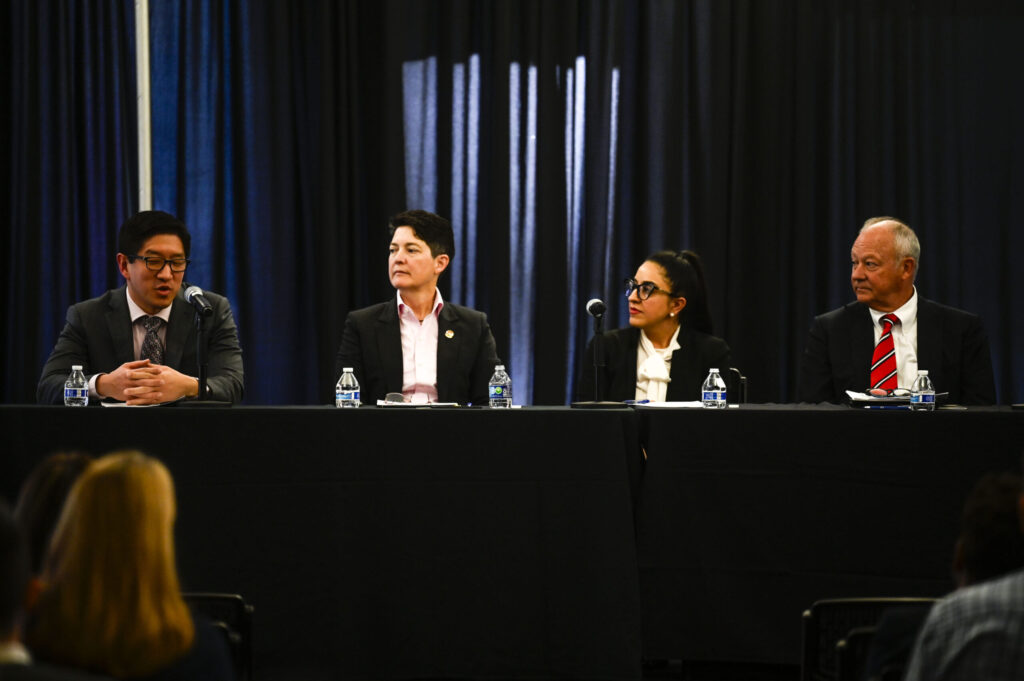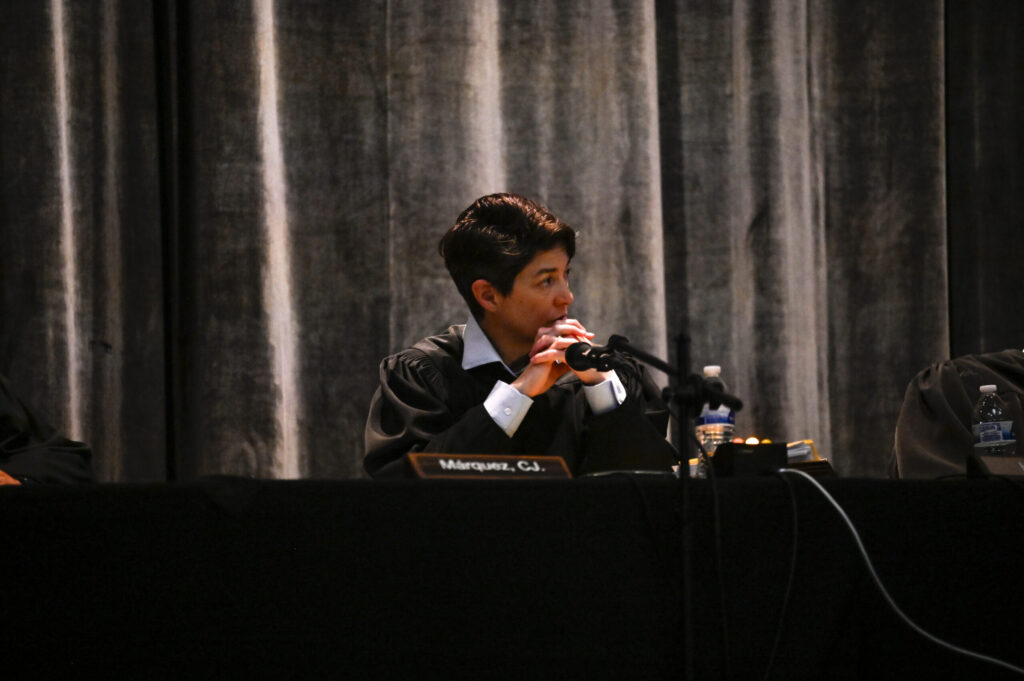Appeals court finds Denver judge relied on unsupported facts to restrict man’s parenting time

Colorado’s second-highest court concluded last week that a Denver judge made “clearly erroneous” findings about a father’s sobriety and his request for parenting time when she imposed strict conditions on visitations with his children.
Following a virtual April 2024 hearing in which both parents were without a lawyer, then-District Court Judge Jennifer Torrington issued an order governing the parenting time and decision-making for the couple’s two children. She noted the father, Javon Markel Calhoun, had historically exercised “only the most occasional parenting time.” The mother, in contrast, wanted Calhoun to visit their children “as often as he is willing to do so.”
However, Torrington continued, “Father has not provided through filing or testimony any record of the parenting time that he is either willing or available to exercise.”
Torrington elaborated that the mother “raised concerns as to Father’s sobriety and instability. Father’s demeanor and presentation at the time of the permanent orders hearing was indicative that Father was under the influence of drugs or alcohol,” she wrote. “The Court shares Mother’s concerns that Father’s needs as to management of substance abuse and addiction are not currently managed.”
As a result, Torrington gave Calhoun four hours of supervised parenting time per week and imposed drug-testing requirements if Calhoun wanted unsupervised visitations.
Calhoun, now represented by a lawyer, quickly asked Torrington to reconsider. He noted that on multiple occasions, he requested parenting time every other weekend, contradicting the finding that Calhoun failed to provide “any record” of what he was willing to do.
Moreover, while the mother had concerns about Calhoun’s housing stability, there was no evidence about his sobriety or drug use at all.
As for Torrington’s perception that Calhoun was under the influence at the hearing, “Father can only guess that the Court is referring to Father’s speech impediment that causes him to stutter when speaking,” wrote attorney Bria Burgamy. “The Court did not inquire directly with Father or Mother about Father’s speech impediment nor did the Court ask Father if he was under the influence at the hearing. Again, nothing in the record supports this finding. Instead, the Court came to a false conclusion.”
Torrington denied the motion.
Calhoun turned to the Court of Appeals, reiterating the discrepancies between what the evidence showed and what Torrington wrote.
“In fact, the record is so devoid of facts as set forth by the trial court that it raises questions as to whether the trial court might have mistaken this case for another,” wrote Burgamy.
A three-judge appellate panel agreed multiple sections of Torrington’s order were “clearly erroneous,” including the finding that Calhoun had sobriety issues.
Judge Timothy J. Schutz, in the April 17 opinion, acknowledged Torrington was within her rights to assess Calhoun’s behavior during the hearing.
“However, the court did not ask father about any suspected intoxication or inquire about father’s unusual speech patterns or general demeanor to gain an understanding of his mental or physical state,” he wrote. “This finding is particularly concerning in light of father’s assertion in his post-trial motion that he has a stutter — providing an explanation for his unexplored speech pattern that troubled the court.”
Schutz also noted Torrington failed to explain what factors she considered when limiting Calhoun to only four hours of parenting time per week, and did not justify the restriction with a finding that the children would be otherwise endangered.
“Although it made unsupported findings about father’s sobriety, it did not explain whether or how those findings established endangerment,” he wrote.
The panel reversed the order.
The case is In the Parental Responsibilities Concerning J.C. et al.












